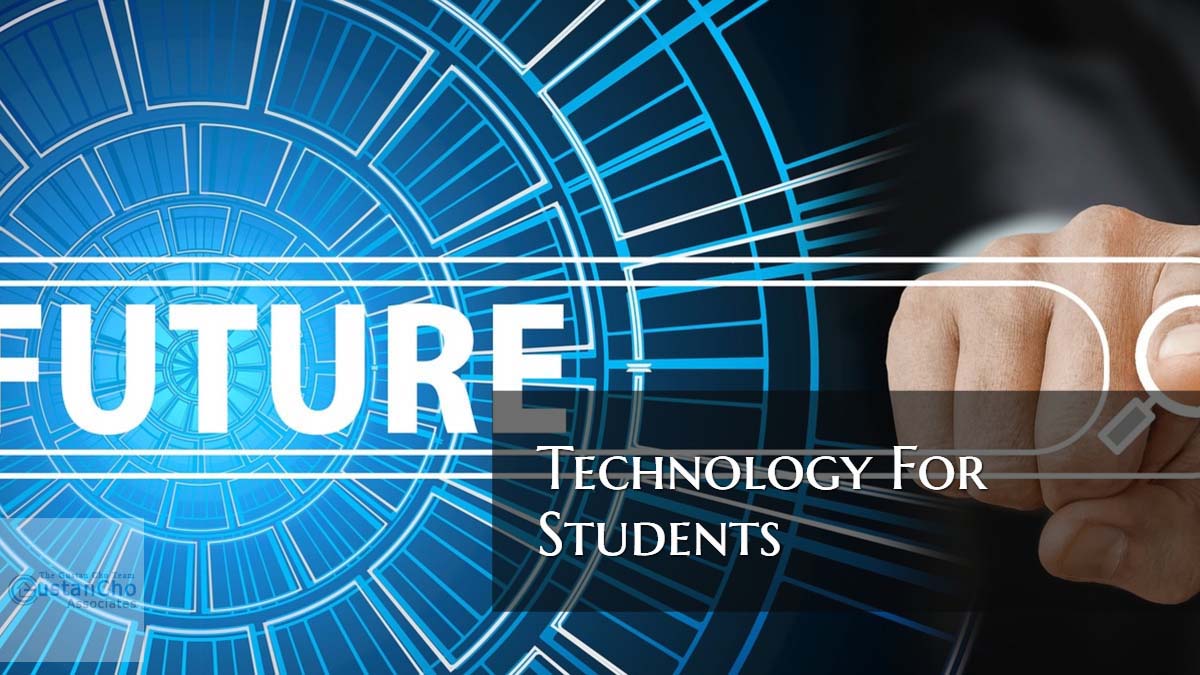Technology for Students at College Campuses in 2025
The Changing Scope of Technology for Students
Technology has revolutionized education by facilitating learning, communication, and student life. In 2025, students will enjoy the benefits of numerous digital devices and tools that help them become more productive, collaborate, and enhance their academic success. This post explains how the newest technologies for students in colleges and universities have transformed education and how these advancements ensure integrated and productive learning experiences.
Smart Campus Ecosystems
- IOT-Able Campuses: Colleges use Internet of Things (IoT) devices to make their campuses smarter. IoT devices help track data such as student safety, energy consumption, and class occupancy in real-time.
- AI-Driven Chatbots: Nowadays, universities employ AI chatbots for student services. They respond to questions regarding campus activities, aid finances, and course registrations any time of day or night.
- Mobile Campus Applications: Students can now access grades, schedules, library materials, dining hall menus, and more through centralized applications that update in real-time.
Virtual and Augmented Reality (VR & AR) in Education
- Transforming Learning: VR and AR technologies are transforming education by providing hands-on, immersive learning experiences in medicine, engineering, the arts, and more.
- Campus tour from your home: Prospective students can visit campuses with VR-guided tours, making the selection process easier.
- Study Tools Enhanced with AR: Students can use apps like Google Lens to interact with course materials using AR visualizers, making it easier for them to learn.
- Cloud-Based Solutions for Storage: Drive, OneDrive, and Dropbox allow seamless access, sharing, and storing of academic material, making it easier for students.
- Collaboration Software: Zoom, Slack, and Microsoft Teams enable real-time teamwork and ease the management of group assignments.
- Writing Assistant Powered by AI: ChatGPT and Grammarly assist students in enhancing their writing skills and producing high-quality assignments.
- AI and Personalized Learning: AI Tutors and Learning Platforms, such as Kahoot, Coursera, Chegg, and Khan Academy, use individual learner styles to adapt and personalize their recommendations.
- Automated Transcription: Notion and Otter.ai use AI to automatically generate lecture transcriptions and summaries.
- Plagiarism checkers with AI: Advanced plagiarism checkers ensure integrity by monitoring and steering AI-driven and copied content.
Cyber Security and Privacy Awareness Digital
Multi-factor authentication (MFA)—To protect against cyber threats, universities are mandating MFA on student accounts.
Encrypted Communication Platforms
Signal and Proton Mail are very private, secure messaging apps that are useful to students and enable online communication.
Campus Cybersecurity Training
Many institutions now offer digital security courses to educate students on safe online practices and protect them from threats.
Smart Devices and Wearables That Enhance Learning
- Smart AI-Equipped Writing Devices: The Livescribe Smartpen is an example of a device that turns written notes into digital text for easy relocation and organization.
- Wearable Technology: Students can use smartwatches and fitness bands to inculcate healthy practices, monitor time, and concentrate better.
Kindles, iPads, and e-textbooks are affordable, eco-friendly substitutes for traditional print books, and they support e-readers and digital textbooks.
E-learning and Hybrid Models of Education
- Many Universities Have Increased Their Online Course Enrollment Capacities: Most universities offer a mix of conventional and online courses for better flexibility.
- AI Systems That Mark Student Work: Lecturers use automated grading systems for immediate and more objective evaluation.
- Blockchain Technology for Storing and Sharing Academic Data: These documents are issued in a blockchain format, which some colleges and universities have started using because it is safe and cannot be changed.
The shift towards digitalization and incorporation of new educational technologies have greatly impacted smart campuses and AI-taught students. However, there is still room for improvement in educational efficiency and student engagement.
Continue reading to learn about how advanced pedagogical technologies can help tackle issues related to higher education in the field of study.
Archived Material: Instructional Technology Integration for the College Student (2018)
(The post from 2018 is saved for reference here.)
This guide covers technology for students at college campuses. Smart campuses and the campus Internet of Things (IoT) platform offer a new perspective and approach to catering to modern times. This highly technical and fast-paced era requires new learning applications and environments. If a college or university wishes to attract the tech-savvy student of today, the technological infrastructure of the institution has to be sound. Here we will explore the features of a smart campus. In this article, we will discuss and cover technology for students at college campuses.
Safe and Secure Environment Technology For Students
Security and safety are of the utmost importance in a campus setting. Smart campuses are equipped with sophisticated security installations like smart lighting at night, closed-circuit surveillance video cameras, and integrated security systems. Installations like GPS and RFID technology help to keep track of student activity to increase the security of the campus. The technological integration also helps law enforcement officials when there are incidents on smart campuses
Network Connectivity Technology For Students at College Campuses
Having super-fast, high-speed wireless and fixed internet network connectivity is paramount for the smart campus model. A majority of students will simultaneously connect at least two devices to the campus network. The significant demand for high-speed connectivity makes this one of the critical issues that students look for in a modern campus. Slow or inconsistent internet connectivity can be a real deal-breaker to some. Some other notable features for smart campuses are the consideration for multi-application support, wireless mobility, and media selection. A versatile physical layer combined with flexible network capabilities makes the network environment on smart campuses superior.
Technology for Students: Innovative Learning Environment
The vast expansion of technology over the past couple of decades has increased the pressure to improve learning outcomes. The smart campus places the focus on how technology is enhancing the student learning experience. These campuses also promote innovative learning. The visual engagement, personalized communication, network accessibility, and access to data resources provided by smart campuses are essential features for modern universities. Students like to be assured that they will have instant access to data and content. Cloud servers also add to the ease of data storage and retrieval.
Technology For Students: Functional Spaces
The productivity of students and faculty on smart campuses is enhanced by the flexibility of facilities on smart campuses. These practical places include faculty and staff offices, learning areas, technical rooms, collaborative spaces, and non-academic facilities on campus. These areas are enhanced by the incorporation of professional audio/visual (A/V) equipment—professional lighting and conferencing equipment, high-fidelity sound systems. Intelligent locker systems are also installed in some of these areas.
Infrastructure Interoperability
Enabling the campus Internet of Things (IoT) platform allows analysis of the environment monitoring and the ability to make real-time adjustments to improve efficiency and productivity.
The five senses of the campus Internet of things are
- Environmental Monitoring
- Communication Enablement
- Visual Management
- Security Integration
- Network Connectivity
Conclusion
Addressing the above areas will ensure the proper functioning of the smart campus. If, for instance, a family is seeking homes for sale in Indianapolis, knowing that there is a smart campus in the area is a benefit if they have a child ready to attend the university there. Smart campuses provide an environment very attractive to the modern student.
Gustan Cho Associates is a national mortgage broker and correspondent lender with no overlays on government and conventional loans.









